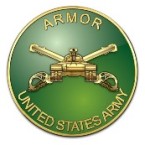Wild Bill
Posts: 6821
Joined: 4/7/2000
From: Smyrna, Ga, 30080
Status: offline

|
How true! If you've ever lived in a climate of dry and rainy seasons, you know that there is nothing quite like it. The rains began sporadically, a little every day. It builds and builds until you reach a point where it rains...daytime, nightime, all the time. It just never stops. No sun, no dryness, mold, mildew, rot and a small, that damp "tennis shoe" smell.
I love the four seasons much more. Combat was fierce, horrid, but often the living conditions was another type of hell that dogged the soldiers.
On the Eastern Front, I jotted down a few thoughts as to the conditions for the Germans in the winter of 41-42. It makes you think.
Promise, no more of this from me. I just thought you might get a better picture of 1941 deep in Russia. It makes me shiver to think about it.
-----------------------
THE SOVIET WINTER
For some people, such as an old southern boy like me, the concept of severe winter weather is difficult to grasp. Those who live in this type of climate learn eventually to either adjust to it or cope with it.
Few populated places in the world can boast of a winter as drastic as that of the Soviet Union. When the German military entered into war with Russia, they optimistically calculated that it should all be over in six months. Hitler boasted to General von Rundstedt, "Kick in the door and the whole rotten structure will fall down!"
Well, the door had been kicked in, all right; in fact, it had been shattered, but somehow the structure still stood. It had been shaken to its foundation with the violent earthquake called Blitzkrieg, but somehow it had not yet fallen.
October came and went, and the weather deteriorated rapidly. It consisted of heavy rain, snow showers, damp and penetrating mists, all of which made movement nearly impossible, and living conditions uncomfortable. It would only get worse.
Hitler, in order to avoid giving the idea that he expected a long campaign, had made no provision for winter weather, either for his vehicles or his men. On October 7th, when a quick snowfall came and went, Guderian immediately requested winter gear for his troops. He was told that he would receive it in due course (it never came) and "not to make further unnecessary requests of this type."
Tragically, it would be the winter of 1943, two years later, before winter clothing and equipment in larger quantities would be issued to the Wehrmacht. On this first year the Germans were forced to deal with the situation on their own.
By the first of December, German soldiers found the weather was becoming unbearable. They had never experienced such cold. The temperature plummeted at times to 40 degrees below zero! In desperation, they took the uniforms of the dead to wear with their own. Newspaper, if it could be found, was stuffed within their clothing to offer some insulation.
Thousands of surrender leaflets written for the Russians were instead used by the Germans to try help keep out the cold. When the temperatures reached 50 degrees below zero, the breeches of weapons were frozen solid and could not be fired. Oil in trucks and tanks had the consistency of tar, and the drag on the batteries made it impossible to start their engines. Battery plates were warped, cylinder blocks split open, and axles would not turn. If anything had been packed in grease or oil, it would have to be shaved off with knives.
At this point, there was little shelter available. What buildings that had not been destroyed by German artillery had been leveled under Stalin's burnt earth policy. Nothing is more prized in this type of weather than some sort of shelter from it. There was little to be had.
On December 10th, Guderian recorded a low of 63 degrees below zero. On that kind of day, it was death to squat in the open. One witness of the disaster wrote, "A man seeking to perform natural functions would die as a result of a congelation of the anus." Those who could eat watched hungrily as the axe rebounded off the flesh of a frozen horse as though it had struck a stone. Another instance was related of a man who received his boiling soup from the field kitchen. He searched for his spoon for about thirty seconds. By then the soup was lukewarm. Even though he began to eat as quickly as he could, the last spoonfuls would be frozen in the bottom of the bowl.
Some tried self inflicted wounds to end their plight. Those who did not die immediately suffered a slow death from exposure and gas gangrene. Some chose a hand grenade as the weapon of death. They would pull its pin and hold it to their stomach. If not dead instantly, the charred pulp of what had been their intestines would freeze in minutes and stop the bleeding, thus prolonging the agony of death for the poor soldiers.
Suffering with dysentery, frostbite, and often half drunk on schnapps, or whatever could be found to drink, the German soldier was a picture of the most abject misery. It seemed only fitting that a special medal was struck for those who participated in the first winter campaign. It was known as the Gefrierfleisch Orden, or the Order of the Frozen Meat. Ironically, it was the coldest winter Russia had experienced since Napoleon's invasion in 1812.
_____________________________
 In Arduis Fidelis Wild Bill Wilder Independent Game Consultant
|
 Printable Version
Printable Version


























 New Messages
New Messages No New Messages
No New Messages Hot Topic w/ New Messages
Hot Topic w/ New Messages Hot Topic w/o New Messages
Hot Topic w/o New Messages Locked w/ New Messages
Locked w/ New Messages Locked w/o New Messages
Locked w/o New Messages Post New Thread
Post New Thread